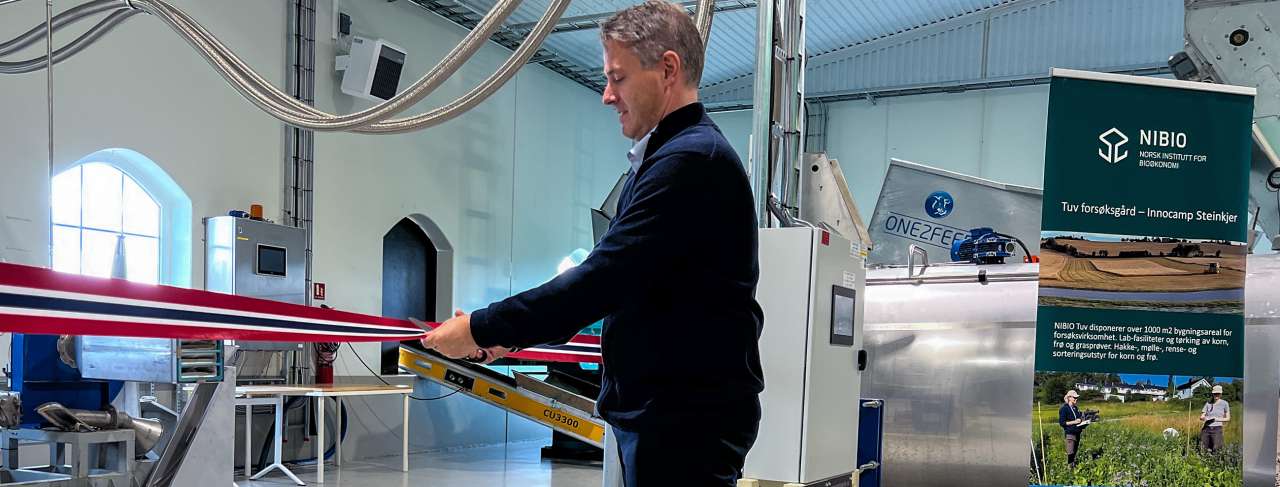Seaweeds and grass may feed fish and pigs

Photo: Anette Tjomsland Spilling
At a new green biorefinery plant, researchers will test how grass and macroalgae can provide us with locally produced protein feed that pigs, chickens and fish can utilise. Could Norway become self-sufficient in proteins?
Norway has established its first pilot plant for green biorefining at Tuv Research Farm in Steinkjer, NIBIO. Here, macroalgae and grass undergo rough treatment in a screw press, releasing valuable nutrients from plant cells. The technology makes it possible to extract protein and nutrients for feed for monogastric animals, such as pigs and chickens, as well as for the aquaculture industry.
Grassland crops cover over half of Norwegian agricultural land. Additionally, we have large quantities of seaweed along the coast. Recent research showed that grass has a protein quality comparable to imported soya.
In a feeding experiment with pigs, researchers found that we can add considerable amounts of grass protein concentrate from the biorefinery without affecting meat quality.
In another experiment, dairy cows fed silage of grass press cake (pulp) milk yield was not affected compared to cows fed traditional grass silage. Feeding pulp silage may improve nitrogen utilization and thus reducing negative impact on the environment.
If Norway is to focus on protein feed from biorefinery of forages and macroalgae, we must solve challenges related to volume, quality and costs. Protein from green biorefining is currently more expensive than protein from soya. Researchers are working to develop more products to make the concept more profitable, as well as to make the technology and process more efficient.
Green biorefining could become key to increased self-sufficiency and reduced environmental impact in the future, whilst opening doors for innovation across several industries.
Contacts

Steffen Adler
Research Scientist
-
Division of Food Production and Society
(+47) 404 82 199 steffen.adler@nibio.no Office Location: Steinkjer
Purpose
To contribute new knowledge about how green biorefining can contribute to sustainable feed production and the green transition.
Funding: NIBIO
Contacts

Steffen Adler
Research Scientist
-
Division of Food Production and Society
(+47) 404 82 199 steffen.adler@nibio.no Office Location: Steinkjer
